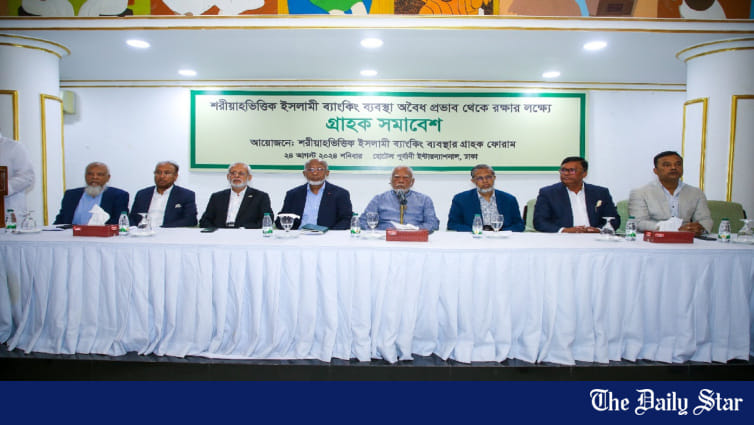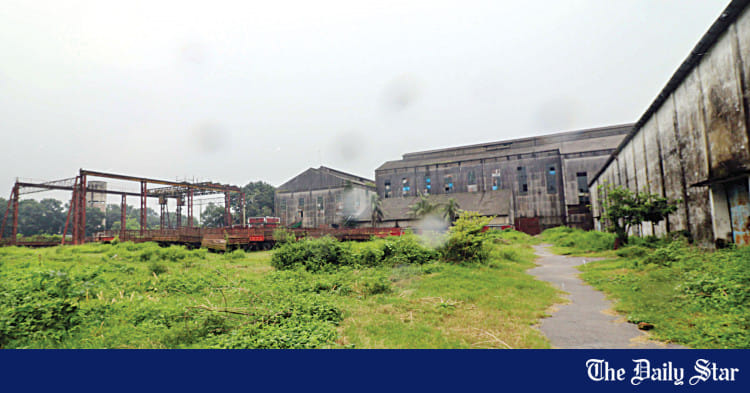Saif
Senior Member
- Joined
- Jan 24, 2024
- Messages
- 17,175
- Likes
- 8,163
- Nation

- Residence

- Axis Group

ACC revives investigation into S Alam’s S’pore wealth
The Anti-Corruption Commission has decided to resume its investigation into the alleged money laundering by S Alam Group Chairman Mohammed Saiful Alam alias S Alam.
ACC revives investigation into S Alam’s S’pore wealth
It comes year after Star report
The Anti-Corruption Commission has decided to resume its investigation into the alleged money laundering by S Alam Group Chairman Mohammed Saiful Alam alias S Alam.
A recently held meeting at the ACC headquarters decided this, a senior ACC official said.
An investigation by The Daily Star last year found that S Alam built a US $1 billion empire in Singapore.
ACC sources said all relevant records regarding the allegations will be collected, including how much money he borrowed from banks, what assets he might have acquired illegally, and in which sectors the money was invested.
Citing an Appellate Division's ruling, Supreme Court lawyer Khurshid Alam Khan told The Daily Star, "The ACC could have investigated the money laundering allegations against S Alam before. Given the current circumstances, starting the investigation now is a positive step."
On August 13 last year, the ACC began investigating the money laundering allegations against S Alam after The Daily Star on August 4 last year published a report titled "S Alam's Aladdin's Lamp".
The report said S Alam built a business empire in Singapore worth at least $1 billion, although there was no record of him taking any permission from Bangladesh Bank to invest or transfer any funds abroad. It said S Alam bought at least two hotels, two homes, one retail space, and other properties over the last one decade, all the while seeking to remove his name from the paper trails.
On August 6 last year, the High Court directed the authorities to investigate the allegations of him owning businesses abroad without Bangladesh Bank's permission.
On February 5 this year, the Appellate Division of the Supreme Court scrapped the HC suo moto rule that had ordered an investigation.
However, the apex court said the ACC, the CID, and Bangladesh Financial Intelligence Unity (BFIU) can take legal steps on the matter on their own.
On August 18 this year, the ACC received a copy of the Appellate Division's order. Following the order, the ACC reopened the case on Tuesday.
It comes year after Star report
The Anti-Corruption Commission has decided to resume its investigation into the alleged money laundering by S Alam Group Chairman Mohammed Saiful Alam alias S Alam.
A recently held meeting at the ACC headquarters decided this, a senior ACC official said.
An investigation by The Daily Star last year found that S Alam built a US $1 billion empire in Singapore.
ACC sources said all relevant records regarding the allegations will be collected, including how much money he borrowed from banks, what assets he might have acquired illegally, and in which sectors the money was invested.
Citing an Appellate Division's ruling, Supreme Court lawyer Khurshid Alam Khan told The Daily Star, "The ACC could have investigated the money laundering allegations against S Alam before. Given the current circumstances, starting the investigation now is a positive step."
On August 13 last year, the ACC began investigating the money laundering allegations against S Alam after The Daily Star on August 4 last year published a report titled "S Alam's Aladdin's Lamp".
The report said S Alam built a business empire in Singapore worth at least $1 billion, although there was no record of him taking any permission from Bangladesh Bank to invest or transfer any funds abroad. It said S Alam bought at least two hotels, two homes, one retail space, and other properties over the last one decade, all the while seeking to remove his name from the paper trails.
On August 6 last year, the High Court directed the authorities to investigate the allegations of him owning businesses abroad without Bangladesh Bank's permission.
On February 5 this year, the Appellate Division of the Supreme Court scrapped the HC suo moto rule that had ordered an investigation.
However, the apex court said the ACC, the CID, and Bangladesh Financial Intelligence Unity (BFIU) can take legal steps on the matter on their own.
On August 18 this year, the ACC received a copy of the Appellate Division's order. Following the order, the ACC reopened the case on Tuesday.








































